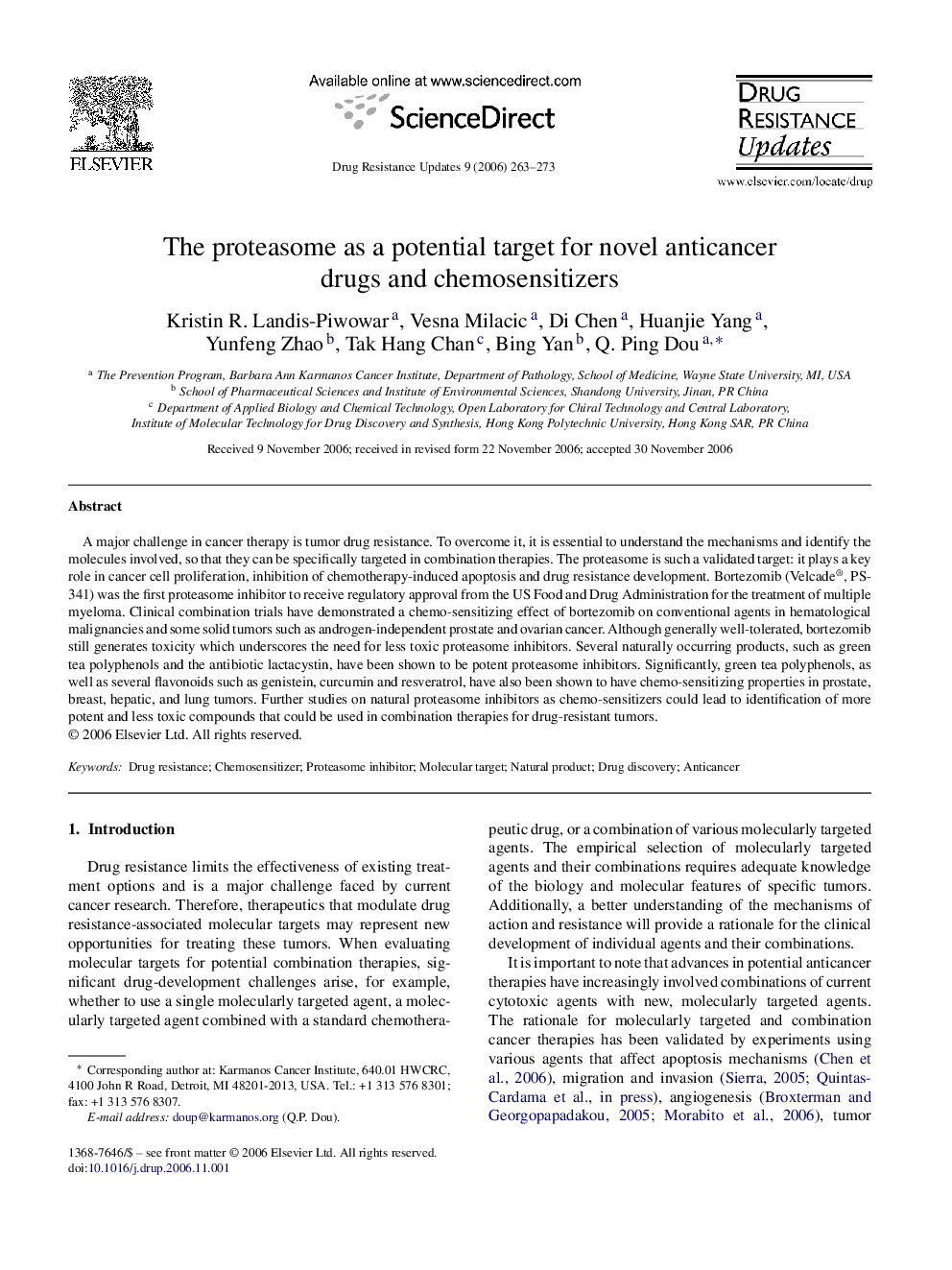| Article ID | Journal | Published Year | Pages | File Type |
|---|---|---|---|---|
| 2120525 | Drug Resistance Updates | 2006 | 11 Pages |
A major challenge in cancer therapy is tumor drug resistance. To overcome it, it is essential to understand the mechanisms and identify the molecules involved, so that they can be specifically targeted in combination therapies. The proteasome is such a validated target: it plays a key role in cancer cell proliferation, inhibition of chemotherapy-induced apoptosis and drug resistance development. Bortezomib (Velcade®, PS-341) was the first proteasome inhibitor to receive regulatory approval from the US Food and Drug Administration for the treatment of multiple myeloma. Clinical combination trials have demonstrated a chemo-sensitizing effect of bortezomib on conventional agents in hematological malignancies and some solid tumors such as androgen-independent prostate and ovarian cancer. Although generally well-tolerated, bortezomib still generates toxicity which underscores the need for less toxic proteasome inhibitors. Several naturally occurring products, such as green tea polyphenols and the antibiotic lactacystin, have been shown to be potent proteasome inhibitors. Significantly, green tea polyphenols, as well as several flavonoids such as genistein, curcumin and resveratrol, have also been shown to have chemo-sensitizing properties in prostate, breast, hepatic, and lung tumors. Further studies on natural proteasome inhibitors as chemo-sensitizers could lead to identification of more potent and less toxic compounds that could be used in combination therapies for drug-resistant tumors.
